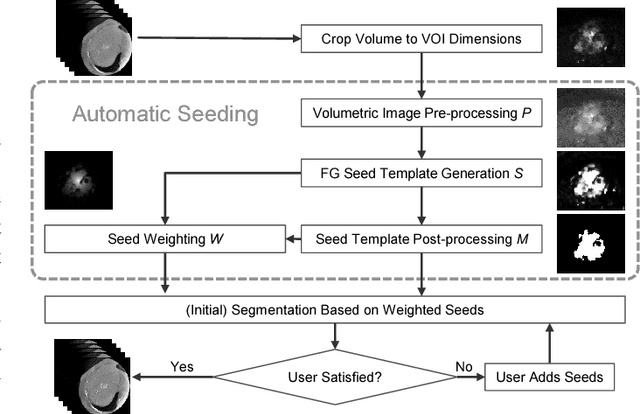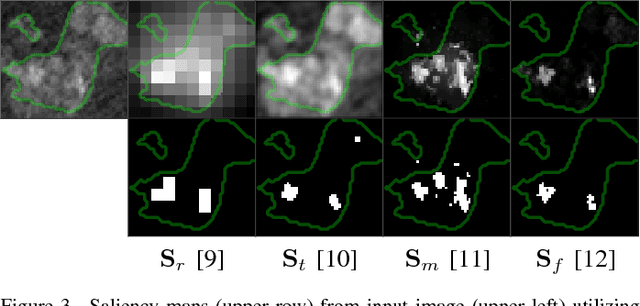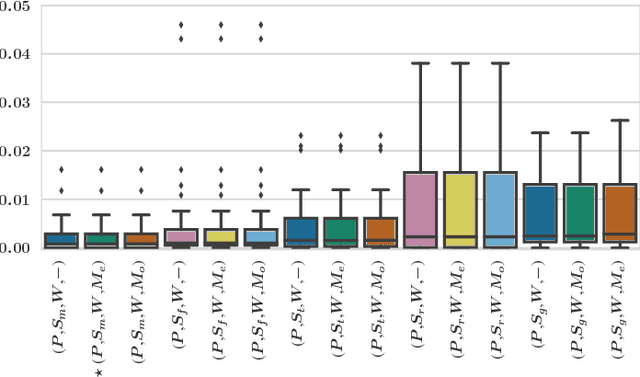Robust Seed Mask Generation for Interactive Image Segmentation
Paper and Code
Nov 20, 2017



In interactive medical image segmentation, anatomical structures are extracted from reconstructed volumetric images. The first iterations of user interaction traditionally consist of drawing pictorial hints as an initial estimate of the object to extract. Only after this time consuming first phase, the efficient selective refinement of current segmentation results begins. Erroneously labeled seeds, especially near the border of the object, are challenging to detect and replace for a human and may substantially impact the overall segmentation quality. We propose an automatic seeding pipeline as well as a configuration based on saliency recognition, in order to skip the time-consuming initial interaction phase during segmentation. A median Dice score of 68.22% is reached before the first user interaction on the test data set with an error rate in seeding of only 0.088%.
 Add to Chrome
Add to Chrome Add to Firefox
Add to Firefox Add to Edge
Add to Edge